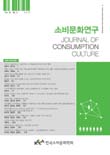학술논문
가계 부채특성과 부채비율이 가계의 경제적부담 및 소비지출에 미치는 영향
이용수 1020
- 영문명
- How ‘Household Debt Quality’ and ‘Debt Ratio’ affect ‘Household Financial burden and consumption expenditures’-using Itemized household consumption expenditures List
- 발행기관
- 한국소비문화학회
- 저자명
- 임은정(Lim, Eunjung)
- 간행물 정보
- 『소비문화연구』제16권 제2호, 117~138쪽, 전체 22쪽
- 주제분류
- 사회과학 > 사회과학일반
- 파일형태
- 발행일자
- 2013.06.30
5,440원
구매일시로부터 72시간 이내에 다운로드 가능합니다.
이 학술논문 정보는 (주)교보문고와 각 발행기관 사이에 저작물 이용 계약이 체결된 것으로, 교보문고를 통해 제공되고 있습니다.

국문 초록
본 연구는 최근 급증하는 가계부채 문제에 대해 가계가 보유한 부채특성과 부채비율이 가계의 경제적부담 및 소비지출에 어떻게 영향을 미치는지를 구체적으로 살펴보고자 분석하였다. 부채특성의 경우 부채유형과 부채상환액, 평균이자율 및 부채총액 등을 변수로 사용하였고, 가계부채비율의 경우 상, 중, 하 집단으로 나눈 부채상환비율(DSR)과 부채비율(DR)을 변수로 사용하였다. 이러한 독립변수를 토대로 가계가 느끼는 부담감 및 실제 소비지출 정도를 분석하기 위해, 선행연구에서 소득탄력성을 기준으로 나눈 필수재, 준선택재, 선택재를 중심으로 조사-분석하였다.
연구 결과, 가계의 부채부담감에 영향을 미치는 부채특성으로는 가구주학력과 직업, 소득과 더불어 제 1금융권 부채보유 여부, 보유한 부채 총액과 부채상환액, 평균납입이자율이 유의한 변수로 나타났다. 반면, 가계부채비율의 경우 가구주의 학력과 더불어 DSR만이 유의한 영향요인으로 나타났다.
한편, 소득, 가구주의 학력 및 직업, 가구크기 등의 인구통계학적 변수와 더불어 가계가 보유한 부채특성의 변수 중 부채상환액과 평균납입이자율, 보유한 부채총액과 제 1금융부채보유여부, 임대보증금 및 개인부채보유여부가 가계의 소비항목별 부담감에 영향을 미치는 것으로 나왔으나, 실제 가계의 소비에 있어 부채특성 변수 중 부채상환액만이 유의한 요인으로 나타났다.
가계부채비율의 경우 가구주학력, 소득과 더불어 부채상환비율(DSR: Debt Service Ratio)만이 소비항목별 부담감에 유의한 변수로 나왔으나, 실제 가계 소비에 있어서는 어떠한 영향력을 갖지 못하는 것으로 나타났다. 오히려 부채비율(DR:Debt Ratio)이 일부 영향을 미치는 것으로 나타났다.
영문 초록
Recently household debt is soaring in Korea, posing serious problems for household itself and also for our society as well. This study examined variables associated with household debt quality and debt ratio to find out any influences in household’s financial burden and actual household consumption expenditures.
This study used two main variables, which are Debt quality( Debt types and debt payments, average interest rates and the total amounts of debt) and Household’s Debt Ratio( DSR, DR), with Socio-demographic variables.
The results of this study are as follows
First of all, It was found that in variable of household debt quality’, householder’s education levels, occupations, income level as well as holding banking debts, total amounts of debt, debt payments, average interest rates had an impact on the debt burden for household. On the other hand, householder’s education levels and DSR levels were the significant factors on the debt burden for household
Second, with some socio demographic variables -such as householder’s age, income levels, education levels, occupations, and household size-, it indicated that debt payments and average interest rates, total amounts of debt, holding the banking debts, holding rental deposits and some personal debts had an effect on the burden of itemized consumption expenditures. However in actual household consumption expenditures, the variable of debt payments was shown as the only significant factor on the burden of itemized consumption expenditures.
Third, householder’s education levels and DSR levels were the significant factors for the burden of itemized consumption. However, DSR did not make any differences to real household consumption expenditures which were rather influenced by DR level.
목차
요약
Ⅰ. 서론
Ⅱ. 선행연구 고찰
Ⅲ. 연구방법
Ⅳ. 연구결과
Ⅴ. 결론 및 제언
참고문헌
Abstract
키워드
해당간행물 수록 논문
- 가계 부채특성과 부채비율이 가계의 경제적부담 및 소비지출에 미치는 영향
- 종목별 스포츠 팬의 관람동기 비교
- Bankruptcy Filers’ Financial Behaviors
- 재무걱정(Financial Worry)과 심리적 오류
- 대학생소비자의 즉석섭취식품 안전만족도에 따른 재구매의도 및 추천의도
- 위험지각태도모델을 활용한 음주 관련 인식 및 행동 유형화 연구
- 소셜 네트워킹 서비스 유형에 따른 ‘이용동기-혜택’간의 관계 고찰
- 은퇴에 따른 가계경제구조의 변화
- 개인의 기술준비도가 소셜커머스 내 여행상품 평가에 미치는 영향
- 브랜드 인지도, 지각된 서비스 품질, 물리적 환경이 구매의도에 미치는 영향
- 중소벤처기업 신제품의 초기시장 개척전략
- 혁신제품의 가치적합성이 관계품질과 수용의도에 미치는 영향
- 마케팅 시각에서 “안녕, 인공존재!” 해석하기
- 제주특별자치도개발공사의 그린마케팅 사례 연구
참고문헌
관련논문
사회과학 > 사회과학일반분야 BEST
더보기사회과학 > 사회과학일반분야 NEW
- 장애인재활상담사 보수교육 운영에 관한 인식 연구: 재활관련 기관 종사자 FGI를 기반으로
- 장애인재활상담사의 직무요인과 상담 전문성, 자기효능감이 심리적 소진에 미치는 영향
- 발달장애 근로 청년의 1인 가구 자립생활 지원 욕구에 관한 연구: 장애 당사자⋅보호자⋅지원인력을 중심으로
최근 이용한 논문
교보eBook 첫 방문을 환영 합니다!

신규가입 혜택 지급이 완료 되었습니다.
바로 사용 가능한 교보e캐시 1,000원 (유효기간 7일)
지금 바로 교보eBook의 다양한 콘텐츠를 이용해 보세요!





